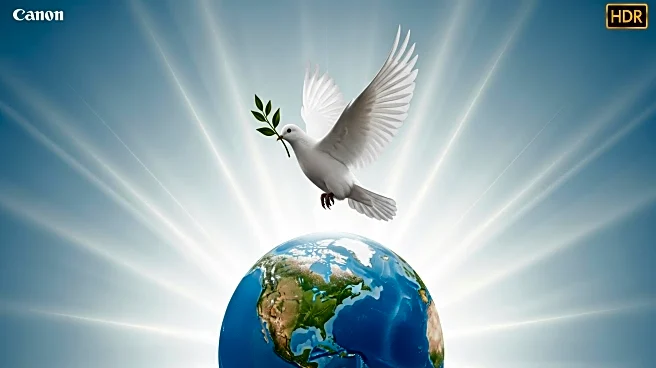What's Happening?
Iran has expressed support for President Trump's initiative aimed at ending the conflict in Gaza. The plan, which involves Hamas agreeing to release hostages and accept certain terms, has been met with cautious optimism from Iran. However, Iranian officials have warned that the plan carries dangerous dimensions and could face obstruction from Israel. The ultimate decision on the plan's acceptance lies with the Palestinians. Recent developments have seen explosions in Gaza City, indicating ongoing tensions despite the proposed peace efforts.
Why It's Important?
The support from Iran for President Trump's plan is significant as it highlights a rare alignment of interests between the U.S. and Iran regarding the Gaza conflict. This development could potentially lead to a de-escalation of violence in the region, which has been a longstanding source of instability. The plan's success or failure could have far-reaching implications for U.S. foreign policy in the Middle East, affecting diplomatic relations and regional power dynamics. The involvement of key players like Iran and Israel underscores the complexity of achieving a lasting peace in the region.
What's Next?
The next steps involve negotiations and discussions among the involved parties, including the U.S., Israel, Hamas, and Palestinian authorities. The international community will be closely monitoring these developments, with potential reactions from other Middle Eastern countries and global powers. The success of the plan hinges on overcoming the identified obstacles and gaining broader acceptance from all stakeholders. Future diplomatic engagements and potential adjustments to the plan may be necessary to address the concerns raised by Iran and other parties.









